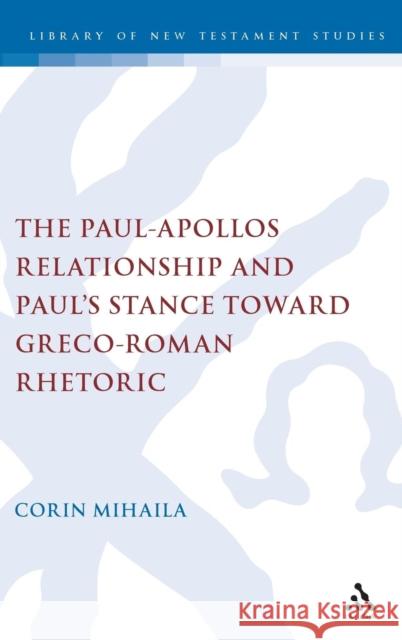The Paul-Apollos Relationship and Paul's Stance Toward Greco-Roman Rhetoric: An Exegetical and Socio-Historical Study of 1 Corinthians 1-4 » książka
The Paul-Apollos Relationship and Paul's Stance Toward Greco-Roman Rhetoric: An Exegetical and Socio-Historical Study of 1 Corinthians 1-4
ISBN-13: 9780567183828 / Angielski / Twarda / 2009 / 272 str.
The Paul-Apollos Relationship and Paul's Stance Toward Greco-Roman Rhetoric: An Exegetical and Socio-Historical Study of 1 Corinthians 1-4
ISBN-13: 9780567183828 / Angielski / Twarda / 2009 / 272 str.
(netto: 831,30 VAT: 5%)
Najniższa cena z 30 dni: 842,79
ok. 30 dni roboczych.
Darmowa dostawa!
Research into the social and rhetorical background of the Corinthian church, shows that the Corinthians were evaluating their leaders based on their rhetorical prowess, seeking to associate with those who would enhance their status and honour. The coherence of Paul's argument in 1 Corinthians 1-4 is evaluated, particularly by showing how Paul's discourse of the cross and Sophia relate to the issue of the dissensions in the Corinthian ekklesia. Once demonstrated that there is a misunderstanding of wisdom amongst church leaders at the basis of the dissensions, a redefinition of the wisdom offered in Corinthians is required.
In what could be considered the locus of Paul's theology of proclamation (i.e., 1 Corinthians 2:1-5), he rejects any employment of worldly wisdom in his proclamation of the cross for theological reasons and will not allow himself or other leaders to be drawn into this game of personality cult and honour enhancement.
Such conclusions then raise the question of the role played by Apollos' name in Paul's argument against dissensions. After a review of several possible views, it is concluded-based primarily on exegetical grounds and refusing to engage in hermeneutical speculations-that Paul had a congenial relationship with Apollos. If any distinction is drawn between the two, it was solely the Corinthians' fault, who viewed their preachers in competitive rather than complementary terms.











